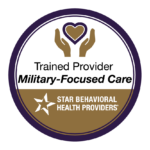
What we say to ourselves often isn’t even close to what we would say to someone else. Sadly, we are often kinder to strangers than we are to ourselves.
It is true much of what we say to ourselves we would never say to anyone else.
And why is it when it comes to our internal dialog, we don’t stop to notice the words we say to ourselves?
There is nothing wrong with self-talk. It’s an essential part of self-awareness. And self-awareness is a crucial part of personal growth. But self talk should always be positive self-talk.
But there is a detachment in how we interact with ourselves vs. how we speak to the rest of the world.
This detachment reinforces negative self-talk. We then repeat words in various situations. Before we know it, we have negative, critical self talk or coined phrases that we only really apply to ourselves.
The word ‘idiot’ is something clients regularly mention in individual counseling sessions. The situations where I hear clients use “idiot” the most often is when they do something “stupid,” otherwise known as a mistake.
Self-talk doesn’t always have to make you feel good. But it should never include harsh self-criticism. Because beating yourself up with self-critical thoughts is never helpful or productive.
Here are some mistakes I regularly make: Burning toast, dropping a dish, forgetting garbage day, missing a calendar event like a birthday, leaving late, and forgetting something…
I call this a “coined phrase” because we wouldn’t call someone else an idiot for these mistakes. We only reserve this for ourselves, and the phrase is packed with multiple hidden meanings that we are often too afraid to consider-including understanding, compassion, and forgiveness.
Here is what I have told myself and what so many clients in individual counseling tell me when we discuss negative self-talk or those coined phrases we use…
“I didn’t really mean that.”
”I didn’t mean it in that way.”
“That’s me being funny.”

Why is it that our self-talk can mean nothing when so many of our thoughts mean so much and even dictate things we do or don’t do?
Well, the truth is our self-talk is everything. We can speak kindly to others but maybe not ourselves. We can show compassion to others and still hold them accountable, but we don’t give this to ourselves.
Over time our self-talk impacts our thought regulations making those “meaningless” things we say to ourselves feel justified or even valid. These thoughts creep into our experiences and can change our behaviors.
When these thoughts are critical, mean-spirited, or judgemental, our behaviors become restricted – now can we honestly keep saying those “coined phrases” mean nothing.
Our self-talk starts to develop when we’re four to five years old. We learn that we’re a good kid or a bad kid, a careful kid or careless kid, that we’re smart, or maybe we’re stupid. This self-talk adapts and evolves as we age, as we experience different people and things.
This self-talk gets wired with our experiences and begins to impact our behaviors. Over time our self-talk can determine our willingness to do things, go places, meet people or take risks.
So, what I am trying to say is, watch your self-talk, don’t just say ‘that thing’ to yourself and if you catch the thought, consider the language you’re using.
I challenge you to keep track of your thoughts. And then pay careful attention to your coined phrases, the things you “just say” to yourself. Notice if simply noticing your thoughts minimize the use of those coined phrases.
If you catch the coined phrases can you stop the “It doesn’t really mean that” argument? Can you reframe that statement? Can you re-label the thought as a mistake, missed opportunity, or an emotion?
As much as negative self-talk can be counterproductive, positive self-talk can be constructive.
If you are struggling with negative self-talk issues, let’s talk about how compassion-focused therapy (CFT) can help you.
We offer remote therapy through teletherapy sessions that include live video counseling.
Or we can meet for in-person therapy.
In-person sessions of traditional therapy are conducted in my Scottsdale counseling center.
Either way, in our therapy sessions, we will work on compassionate mind training, reducing feelings of shame and self-criticism and replacing these feelings with positive thoughts.
You don’t need to be hard on yourself. So take the first step towards feeling better and contact me today.




